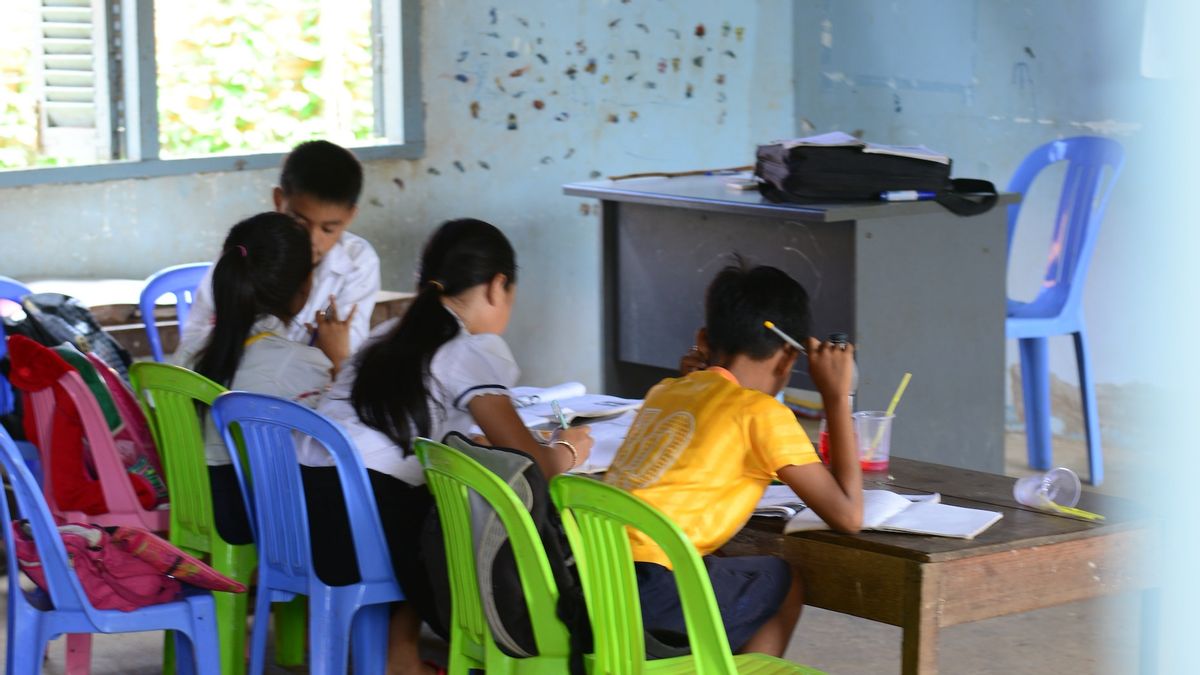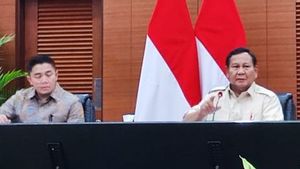JAKARTA - Many school buildings were reported to be damaged, disrupting teaching and learning activities. The collaboration between the central and regional governments should be able to respond quickly to the improvement of damaged education infrastructure.
One of them was the collapse of a school building that occurred at SMPN 3 Agrabinta, Cianjur Regency, West Java. It is known that the condition of one of the classes in the school has been damaged for one year but has not received renovations from the local government.
A similar incident also occurred at SD Negeri Binoh 3 in Burneh District, Bangkalan Regency, Madura. The condition of this school building is very inappropriate and endangers students. One of the classrooms had to be vacated after the wall collapsed. This condition damaged the roof of the building and threatened to collapse.
Indeed, there were no victims. But inadequate school buildings are homework that must be completed quickly by the government. The collapse of school buildings must be used as a stern warning so that the Government evaluates the supervision and management system of the quality of school buildings in Indonesia.
"What is just known may be only part of it, but I am sure that if examined there is a lot of school infrastructure that is inadequate for teaching and learning activities. The government must inspect schools to check the feasibility of buildings and other educational infrastructure," said DPR Speaker Puan Maharani, Friday, October 6.
"In big cities, maybe we rarely encounter damaged schools, but in rural and remote areas, we have heard about this incident. So the local government must move actively in recording and providing assistance to schools in their areas that need it," said Puan.
VOIR éGALEMENT:
Based on data from the Ministry of Education, Culture, Research, and Technology (Kemendikbudristek) in 2022, there are 21,983 schools whose conditions are damaged and need improvement. These schools are scattered throughout Indonesia, with most of them located in rural and remote areas.
Puan asked the Government to increase supervision of construction projects and building maintenance systems as well as facilities in a number of schools.
"Strict supervision will ensure that the condition of the building and school facilities is in accordance with safety and comfort standards for students," he said.
"The Regional Education Office must be more deft in receiving reports from schools and following up if there are school buildings that are not suitable for their condition. A quick response can prevent unwanted incidents," continued Puan.
From the data from the Ministry of Education and Culture, it is also known that the budget to repair damaged school buildings in Indonesia in 2023 is IDR 2.2 trillion. The budget is used to repair 22,023 moderate and severe damaged classrooms.
With the availability of the budget, Puan hopes that the Government can prepare priority for which schools will receive assistance for school renovations.
"The government needs to continue to increase the budget for improving school buildings so that all schools in Indonesia can have good conditions and can support the optimal teaching and learning process," he explained.
Some schools that have difficult access roads are often found in the world of education, such as at SD Negeri 132 Lubuklinggau, South Sumatra which is located in mountainous areas with difficult road access and often hit by landslides. In addition, there is SMA Negeri 1 Dompu, West Nusa Tenggara (NTB) located in a remote area with damaged and rocky road access.
Puan said educational supporting facilities and infrastructure are often taken lightly, but it turns out to have an important role in shaping student character and behavior. According to her, creating a more conducive environment for learning can minimize student delinquency.
"Development of sports facilities is also a focus. With soccer fields, basketball, and other playgrounds, students have alternatives to healthy and useful activities. This helps reduce their tendency to be involved in delinquency," concluded Puan.
The English, Chinese, Japanese, Arabic, and French versions are automatically generated by the AI. So there may still be inaccuracies in translating, please always see Indonesian as our main language. (system supported by DigitalSiber.id)












